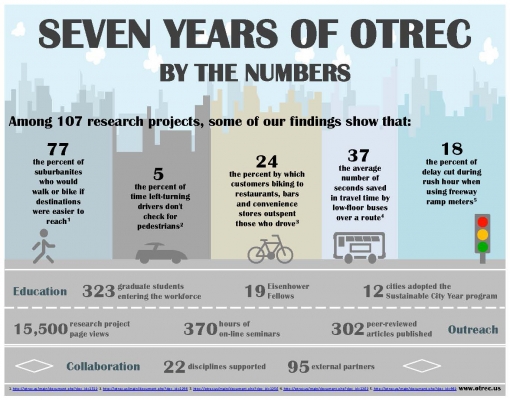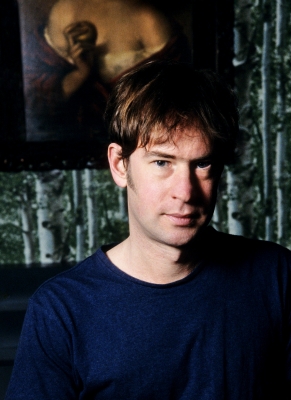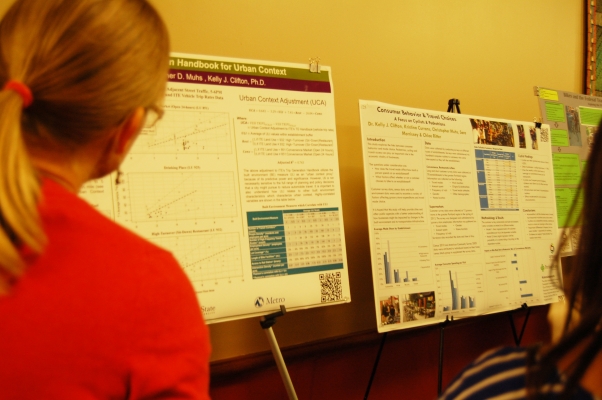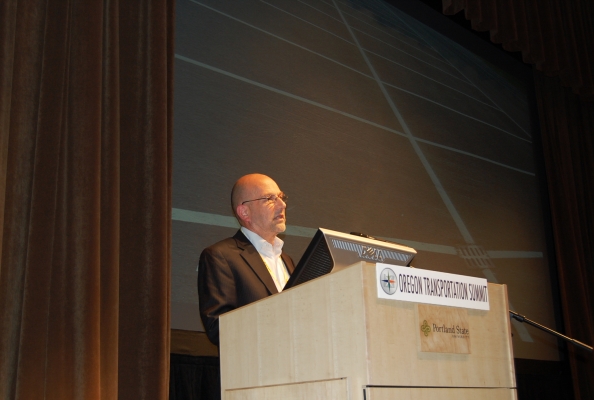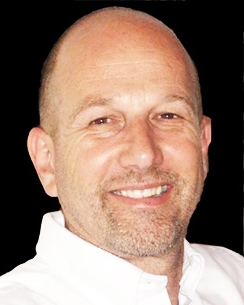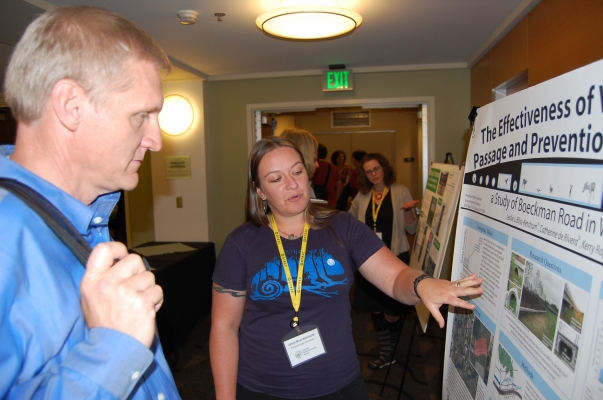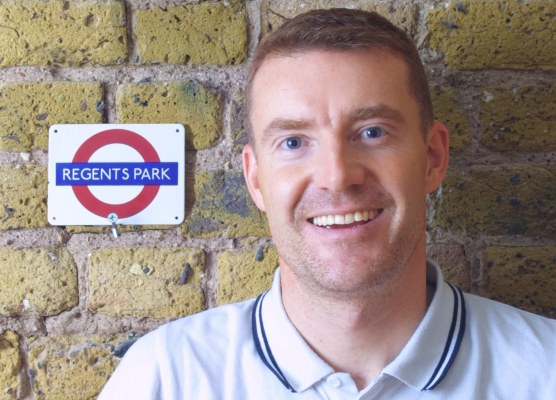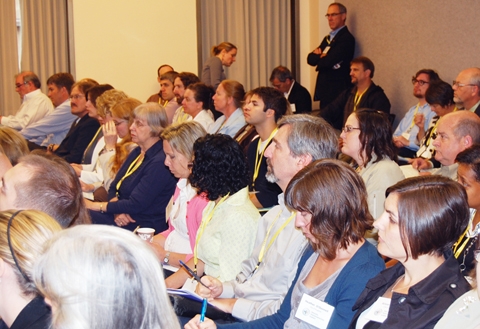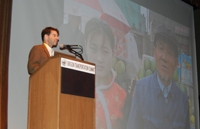As we prepare for the next step in our development as a center, we're taking a look back at the seven years since OTREC's founding:
The Oregon Transportation Research and Education Consortium, or OTREC, was founded in 2006 with a theme that emphasized advanced technology, the integration of transportation and land use, and healthy communities. OTREC’s mission is to inform transportation decision making through timely, useful primary research and to build the capacity of the transportation workforce.
Reflecting the DOT mission, OTREC promotes choices that make our transportation system safe, resilient and adaptable. Providing access to travel options that promote the health of our communities and our environment makes our country stronger.
From the research that makes our communities living laboratories to the innovative education and technology transfer efforts that wed research and practice, our programs lay the groundwork for livable communities. Our advanced technology projects have shown the effect of traffic-signal timing on pedestrians’ exposure to pollution and helped a state Department of Transportation place sensors to best estimate travel times for the least cost. Our healthy communities projects...
Read more
